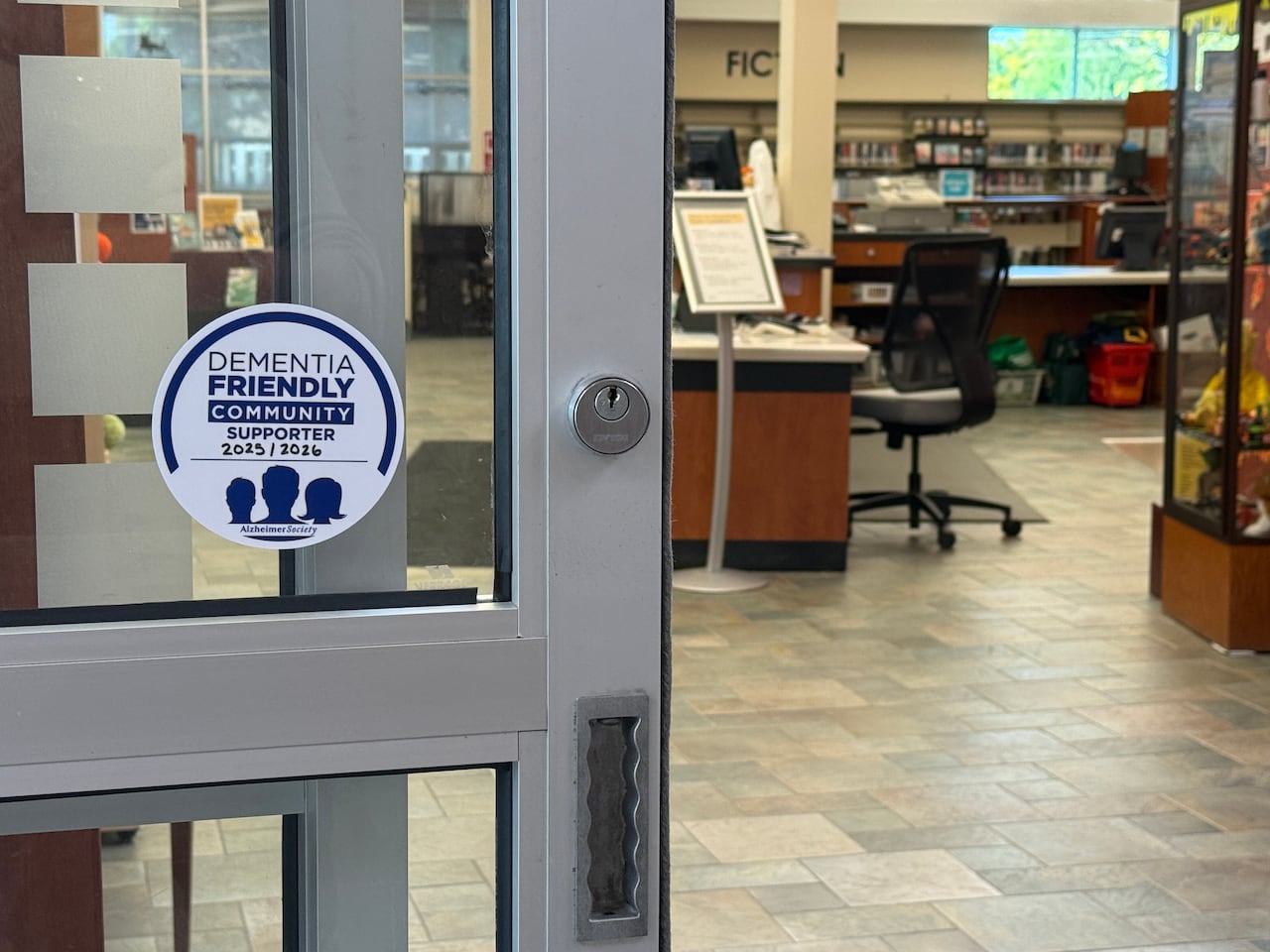This is the first library in London to become 'dementia friendly.' Here's what that means

When London librarian Katie Hill was working one day, an older patron came in seeming very confused.
It turned out that the senior was living with dementia and had wandered away from home. After calling 9-1-1 and ensuring the patron didn't leave the library, staff were able to get in touch with the caregivers.
"It's just one of those experiences that I'll never forget," Hill said. "I wanted to make sure that my space was reflective of that community's needs."
Now, Hill is part of a team working with the Alzheimer Society Southwest Partners to designate the city's first library branch as dementia friendly.
London Public Library's East London branch is joining other organizations across the region to ensure their spaces are safe and accessible for seniors living with dementia and Alzheimer's disease, and that their staff are trained on what to watch out for and how to respond confidently.
East London branch staff now have specialized training from the Alzheimer Society Southwest Partners on how to recognize signs of dementia and early Alzheimer's, and the library has started adapting its space to make it more dementia friendly.

Public libraries are popular among seniors, who often enjoy physical books and newspapers more than their online equivalents, said Hill. Many have been avid readers and longstanding patrons of their local library throughout their lives, and for some, it's just the friendly interactions they have each day with staff in a place that is free to enjoy.
But for people with dementia or Alzheimer's, there are barriers that could turn a visit to the library into a dangerous situation.
Something as seemingly simple as the layout of the space could cause people to feel intimidated, or lead to people getting lost, according to Susan Oster, a public education coordinator with the Alzheimer Society Southwest Partners.
"Some of our clients mentioned being at one of the library branches and they couldn't figure out how to get out," she said. "Think of how panicked you would be if you were in a space and you felt stuck."

One of the things Oster works on with partners is creating clear signage and pathways through the space so people can find what they need, while maintaining a line of sight toward people who can assist them.
Furniture can be made more accessible, as well, Oster explained. For example, chairs with arms help prevent injury if a patron with Alzheimer's has lost their depth perception, allowing them to safely lower or raise themselves.
Rates of dementia expected to riseBecoming a dementia friendly community supporter is an easy process that can be tailored to any business or space, Hill said.
"I think that it's important for everyone to consider, especially with our aging population and the increase of dementia being diagnosed in Canada," she said.

Currently, across Canada, there are 770,000 people living with dementia, and over one-third of those are in Ontario, said Oster. As the population ages over the next 50 years, this number is expected to triple, she added.
"Our goal is to create these welcoming spaces of belonging for people who are aging in their community," she said.
Other locations in London that have worked with the Alzheimer Society to become dementia friendly include the London Intercommunity Health Centre on Highbury Avenue, Cobs Bread, the Municipality of Middlesex Centre, as well as several audiology clinics, banks and seniors' centres.
cbc.ca





